Ceduna remains divided over cashless welfare card
Five years after the cashless welfare card was introduced in the remote SA town of Ceduna, threats and ideology are obscuring evidence.
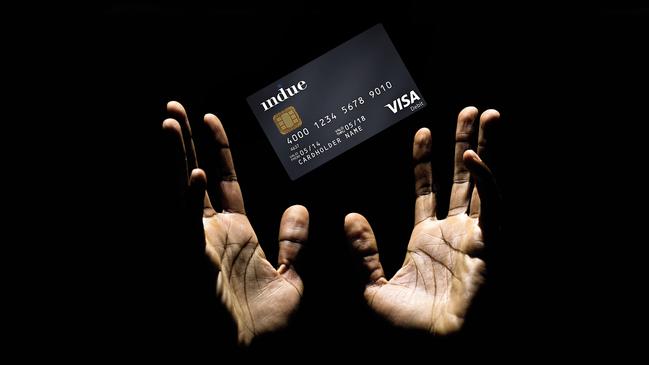
Brian Queema stands in the main street of Ceduna, 780km northwest of Adelaide, and ponders a simple question. Does he, a 60-year-old Aboriginal man, like having the government control the way he spends his welfare money? Queema thinks for a bit before raising his arm and pointing to the pub on the corner. “Some people like it and some people don’t,” he says. “But I reckon it’s a good idea because when people get money they go straight to the pub here. But this card, it slows ’em down. It makes ’em keep more money in the bank and spend less on grog. There is less trouble in this town now.”
Just down the road, Warren Miller, a 50-year-old indigenous man and community worker, disagrees. “The card hasn’t worked,” he says. “I have seen nothing that has changed in this town. People are still drinking, people are still accessing alcohol. If we were going to see a change in Ceduna we would have seen it by now.”
The card that both men talk of is the cashless debit card (CDC) – a grand social experiment that promised to help break the cycle of alcohol and violence in Australia’s poorest communities by limiting welfare spending on alcohol, drugs and gambling. Since it was first introduced in 2016 it has divided the original trial city of Ceduna, where 1050 people are on the card, as well as communities in other trial zones in Western Australia and Queensland. These divisions now extend to Canberra, where both major parties are at war over it.
“It’s very difficult to measure what they are all trying to measure,” explains Brenton Niemz, regional manager for Red Cross, as he sits in his cramped office at the Ceduna Community Hub, which offers a safe place for local Aboriginal people. Niemz speaks carefully, in keeping with the neutral ethos of the Swiss-born organisation, knowing the passions that the card evokes in Ceduna and elsewhere. “Some of these changes [from the card] may not turn up for another generation… results translate over time,” he says. But how much time is needed before the country can say whether its most ambitious attempt at income quarantine for the poorest Australians has worked?
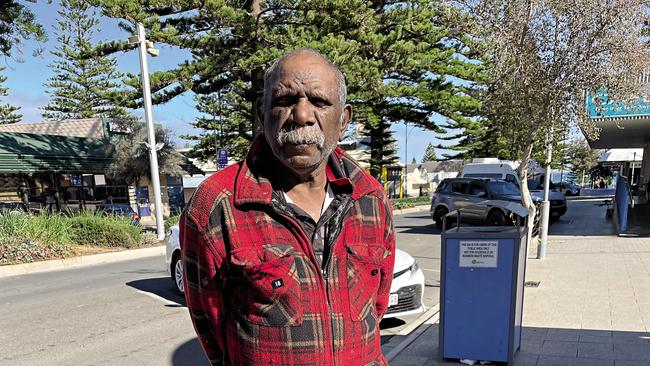
Supporters of the card – which quarantines 80 per cent of welfare payments to prevent spending on alcohol, drugs or gambling, leaving 20 per cent as cash – say it has slashed the incidence of alcohol abuse and violence in those areas where it has been trialled. Not so, say the card’s opponents. They claim the scheme, which has cost more than $80 million since 2015, is not only ineffective but demeaning and disproportionately affects indigenous people, who comprise about 40 per cent of participants nationally. “The [card] legislation comes in the context of generations of paternalism towards First Nations people in this country,” says Labor Senator Penny Wong. Families and Social Services Minister Anne Ruston retorts: “Labor simply makes these sorts of claims because it’s easier than actually trying to work with the Government to address serious issues surrounding disadvantage.”
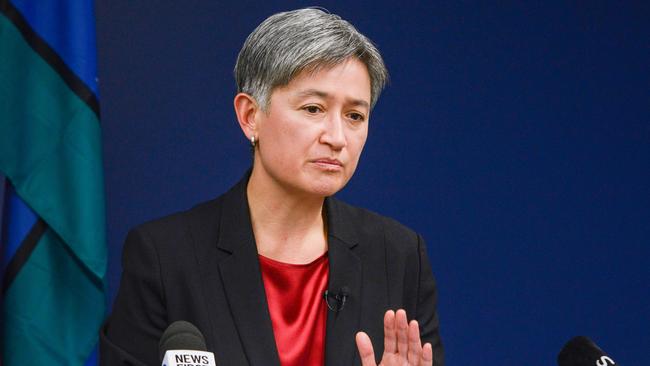
The Federal Government in December extended the card’s trial period a further two years in three states after the Senate defeated a government push to make it permanent. The trouble for the Government and for this entire debate is that, in part because of stuff-ups and flawed data, there is remarkably little clear and quantifiable evidence of the scheme’s effectiveness. This vacuum has turned the debate into a broader ideological tussle over the rights and wrongs of a government being seen to impose such sweeping income restraints on the mainly indigenous poor.
In the Northern Territory roughly 20,000 people, 90 per cent of whom are indigenous, are on the so-called Basics Card, which quarantines 50 per cent of spending for essential items, a measure that came out of the Howard government’s 2007 NT intervention. But the cashless debit card is much broader in scope and connected to the national EFTPOS system, which automatically rejects attempts to buy alcohol or place bets anywhere in Australia for the 80 per cent of payments that it quarantines. This scheme – which emerged from a review of the welfare system by mining billionaire Andrew Forrest in 2014 – is the most ambitious attempt yet by an Australian government to manage the income of welfare recipients.
The remote town of Ceduna, where 22 per cent of the 1850 residents are indigenous, was selected as the first trial site following a 2011 coronial inquest into the deaths of six Aboriginal people in Ceduna that found a “severe and intractable culture of excessive alcohol consumption”. It was extended on a trial basis to the East Kimberley and the Goldfields region of Western Australia in 2018 and to Bundaberg and Hervey Bay region in Queensland in 2019. As of April 30 there are 13,396 people on the card, 5300 of whom are indigenous. Indigenous cardholders comprise 74 per cent of participants in Ceduna, 82 per cent in the East Kimberley, 47 per cent in the Goldfields and 18 per cent in Bundaberg and Hervey Bay.
Those who support the card are dismayed by the allegation that it is racist, especially given it was co-designed by Aboriginal leaders in Ceduna who believe – and still believe – it is good for their communities. The card also originally enjoyed bipartisan political support. So what happened?
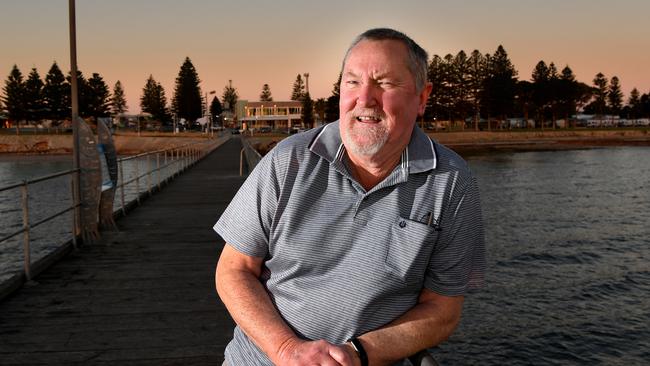
“We need to try something now, I don’t see why this card won’t work,” Wayne Miller, an up-and-coming indigenous leader told me when I visited Ceduna in 2016 to report on the start of the trial. Five years on, the same Aboriginal leaders who initially supported the scheme have gone quiet. Miller declined to answer my request for another interview and the organisation he heads, the Ceduna Aboriginal Corporation, said no one else was available to speak with me.
Former Ceduna mayor Allan Suter says Miller and other local Aboriginal leaders are now reluctant to speak publicly in support of the card because of threats from opponents. Suter, one of Ceduna’s most vocal supporters of the card, says he has also been threatened. “Opponents of the card will do anything they can to rubbish it, they are driven by ideology and they are not frightened to use threats. That’s why some people are wary of talking about it,” he says.
Geoffrey Moffatt, CEO of the District Council of Ceduna, says there has been a dramatic change in town since the card was introduced. “People can say all they want about the effectiveness of the card but all you have to do is walk around the town, especially the foreshore and the CBD after the card was introduced versus prior. You don’t have people with a blood-alcohol content of 0.4 beating the crap out of each other. Now we have families on the foreshore eating fish and chips rather than drinking alcohol. That’s the measure of effectiveness – you see it, you feel it,” he says, pointing out the window.
“I’m happy with the way Ceduna is now,” says 54-year-old Kim Weetra, an indigenous woman and mother of six, as she sits at a Ceduna bus stop with her granddaughter. “There are not as many people here with alcohol, walking around and causing trouble like in the old days.”
The claim that the incidence of alcohol abuse, violence and crime in Ceduna has fallen depends on who you speak to. A research report commissioned by the Government and released in August 2017 found that “in Ceduna, lower levels of harm related to alcohol consumption were indicated by decreases in alcohol-related hospital presentations, outpatient counselling and the number of apprehensions under the Public Intoxication Act”. It also reported positive impacts on parenting and financial management since the card was introduced.
But an Australian National Audit office review of the scheme in July 2018 was critical of the research methods used in both the 2017 report and by the Department of Social Security in its own attempts to measure the card’s impact. For example, it found that the department had failed to “account for seasonality” in its claims that alcohol-linked hospital admissions in Ceduna had fallen and that it had been inaccurate in its data relating to St John’s Ambulance call-outs and school attendance.
All up, the Audit report said it was “difficult to conclude” there had been a reduction in social harm since the card was introduced because of a “lack of robustness” in data collection.
The Audit report prompted the government to commission a $2.5 million study by the University of Adelaide. That 250-page report, released in February, found the impact of the card was more positive than negative. But to the government’s disappointment it also offered mixed and tepid conclusions on many of the social outcomes. Its strongest finding was on alcohol: “We found consistent and clear evidence that alcohol consumption has reduced since the introduction of the CDC in the trial sites. However, with the current evidence, it is not possible to attribute these changes to the CDC alone. They can be attributed, however, to the full complement of relevant policies in the trial areas.”
The report also said there were “short-term” indications that the card helped reduce gambling but added that no longer-term evidence was available. It said it could not reach any clear conclusion about whether the card helped reduce social harm caused by illicit drugs or whether children’s welfare had improved.
Not surprisingly, the report was cherrypicked both by supporters and opponents, with each trumpeting the parts that suited their narrative. Social Services minister Ruston believes the clear weight of evidence points to the card achieving its aims of reducing social harm caused by alcohol and drug abuse, but she expresses frustration with the data collection so far. She is now pushing for a more reliable way of measuring the card’s impact.
Former Ceduna mayor Suter is also angry about the way the scheme has been measured. “If your research predominantly is going to ask people whether they like losing their ability to buy copious quantities of alcohol and drugs, well they are the last people that are going to say how wonderful the card is, and I think those research reports have been flavoured by that,” he says.
Suter is adamant the card has improved the lives of children who, he says, once roamed the town at night because they were scared to go back to their homes for fear of alcohol-related violence or abuse from adults. “Before the card we used to have unsupervised children as young as six, sometimes in groups of 50, walking the streets at night and getting up to all sorts of mischief. They told people it wasn’t safe to be at home because they could get bashed or molested. But this no longer happens. To me the people who have benefited hugely from this card are the children.”
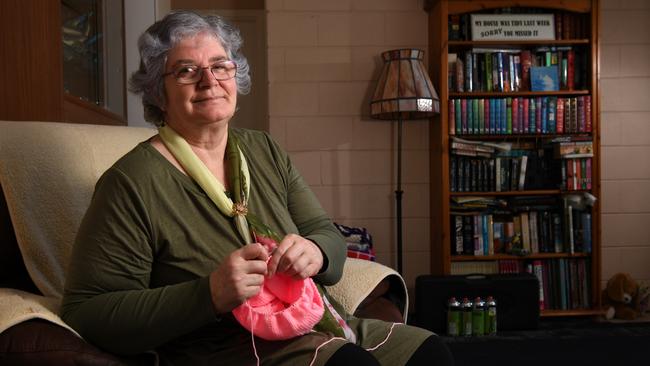
Jocelyn Wighton sits in her lounge room inCeduna and listens to a group of young men speaking loudly as they walk past her house. “Hear that?” she says. “It starts about 4pm and gets louder. The town really has not changed much.” Wighton, who is not Aboriginal and who is on a disability pension, is angry that she has recently been put back on the welfare card. She was initially given the card in 2016 but for the past two years managed to get off it due to an administrative loophole.
Today is her 65th birthday and as she opens her mail she tells me why people like her should not be on a cashless welfare card. “I have always been able to manage my own finances,” she says. “I don’t need anyone else to do it for me or to know what I am spending my money on. It’s hard enough being on a pension without 80 per cent of it being put on a card that you can’t use everywhere.” In the trial sites the card is issued to all residents who receive a working age welfare payment.
Wighton is a member of the local craft shop and her hobby is attending garage sales, which only take cash. “The craft shop doesn’t have EFTPOS and garage sales also don’t have it so I can’t go to garage sales anymore.” As we speak she opens a government letter informing her that her attempt to exit the scheme had failed because she didn’t provide enough documentation. Wighton throws the letter down and begins to cry. “At my age I should not have to worry about things like this,” she sobs.
She shows me a letter written by her doctor to the local health authorities: “[Jocelyn] has been suffering from severe stress [and] ended up having an angry outburst yesterday as a result of building up financial pressures due to this illness. Please let her exit from the card. As everyone knows already, this card is causing severe anxiety on some individuals. This exit option should be available to individuals who manage their finances well.”
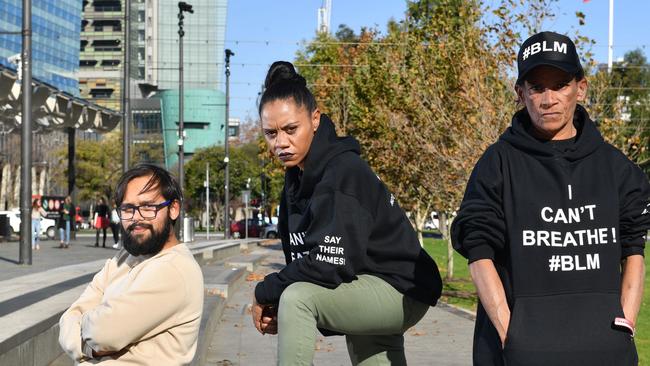
Sue Haseldine, a 70-year-old indigenous local, is not on the card but says there is a stigma about it. “It is mucking people up mentally. They can’t plan their own life and they have no control over their own money. I feel like our Aboriginal people are still in chains,” she says. Another Aboriginal woman, former Ceduna resident Janette Milera, says it is an attempted throwback to the dark old days of white-black relations. “To me the basics card is like putting us back on rations – they are telling us how and where to spend our money. The money spent on the card would have been better used on community programs on the ground to address alcohol and drug issues.”
Scott Wilson, director of the Aboriginal Drug and Alcohol Council in South Australia, says the card is ineffective. “At the end of the day people will collectively pool resources if they want to get on the grog. They will get around it. They also buy things that they don’t necessarily want because they can get it on their cashless welfare card and then sell those goods for cash. It is an ideological thing for the government,” he says. “Because a few people have severe alcohol and drug problems, we will punish the entire welfare sector for it.”
In a scathing critique, the St Vincent de Paul Society says there is no evidence the card has improved the wellbeing of individuals or communities either by reducing substance abuse or by increasing employment outcomes. It highlights a risk of unintended, serious consequences including social exclusion and stigmatisation, increased financial hardship and the erosion of individual autonomy and dignity. “Ultimately, this is a punitive and paternalistic measure that is driven by ideology rather than evidence,” it says.
Ceduna Council CEO Moffatt puts it this way. “There is nothing wrong with saying to people, ‘We will give you your welfare payment in a form every day that allows you to look after yourself and your family’.” Indeed, many indigenous people I speak with say they welcome the intervention. “It’s good for me,” says Teresa Peters, 40, as she sits with friends on the Ceduna foreshore. “I can save money now, for petrol and for food.” Nearby, Edwina Ingomar, 35, says: “It’s all right for me, less trouble happens now.” Her friend sitting next to her, Sabrina Peel, agrees. “Some people don’t like it but I reckon it’s a good idea. It has changed things around here, people drinking less.”
Howard Coote, who has spent much of his life working with Aboriginal communities in the region, cradles a drink in the Ceduna Foreshore Hotel and says he believes the card is effective. “It seems to be working well,” says Coote, indigenous economic development manager at the government-funded Regional Development Australia. “I notice that when people catch the bus back [from Ceduna] to their communities, they now have parcels of consumer goods, whitegoods with them. They are buying stuff that is useful for their children. I didn’t see that previously.”
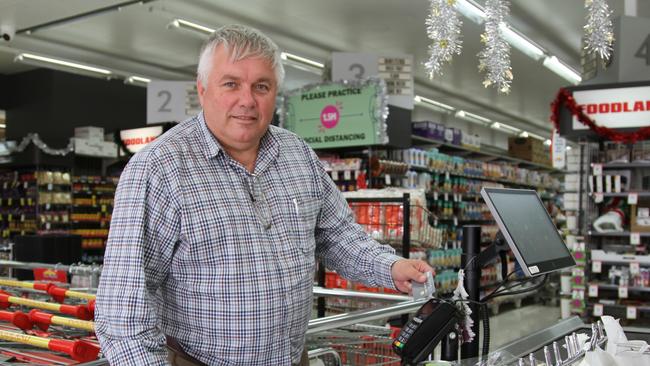
Although the weight of evidence, imperfect asit is, leans towards the card playing a positive role in reducing alcohol and drug abuse in poor communities, this evidence was not clear or strong enough for the Morrison Government to persuade Labor, the Greens or key independents to back its push last December to make the scheme permanent in the four trial sites.
The Government also wanted to transfer about 20,000 people in the Northern Territory from the Basics Card to the CDC. South Australian independent senator Rex Patrick, who had been open-minded about the scheme before he visited Ceduna and the NT, eventually opposed the move to make it permanent, saying he believed it held people back and created further disadvantage. “When I try to balance up everything that I’ve seen, unfortunately the data is not there that supports the concept that the card achieves what it is intended to achieve,” he says. Senator Jacqui Lambie, who had previously supported the trials, also says she is no longer in favour because of the way the government has handled the issue.
When it was clear last December that the Senate would defeat the Government on the issue, Ruston amended the legislation to extend the trials by two years and to make the transition from the NT Basics Card to the CDC voluntary. She says the Government will continue to fight for it to become a permanent feature of Australia’s welfare system. “The amendment does not change our commitment; it simply means we have more work to do in the future to convince parliament they should support this program on a permanent basis too.”
But the Government has much more work to do. Hearing that The Weekend Australian Magazine was in Ceduna to research this story, local Aboriginal leaders representing five communities in the region decided that rather than do interviews they would put out a joint statement. After a delay of six days, the group – some of whom helped design the original card in 2016 – released a statement that said: “The Far West Aboriginal Community Leaders Group continue to monitor the effects of the card in our communities, and strive to provide the best opportunities that allow our region to thrive.”
Former mayor Suter, eating dinner at the local pub, shakes his head. “I believe the card should have been made permanent rather than extending the trial again,” he says. “Just tell me, why should the community give welfare payments to people to buy alcohol or drugs? Personally, I think the card is the best thing that has ever happened to our community. I honestly think it should be introduced Australia-wide.”


To join the conversation, please log in. Don't have an account? Register
Join the conversation, you are commenting as Logout